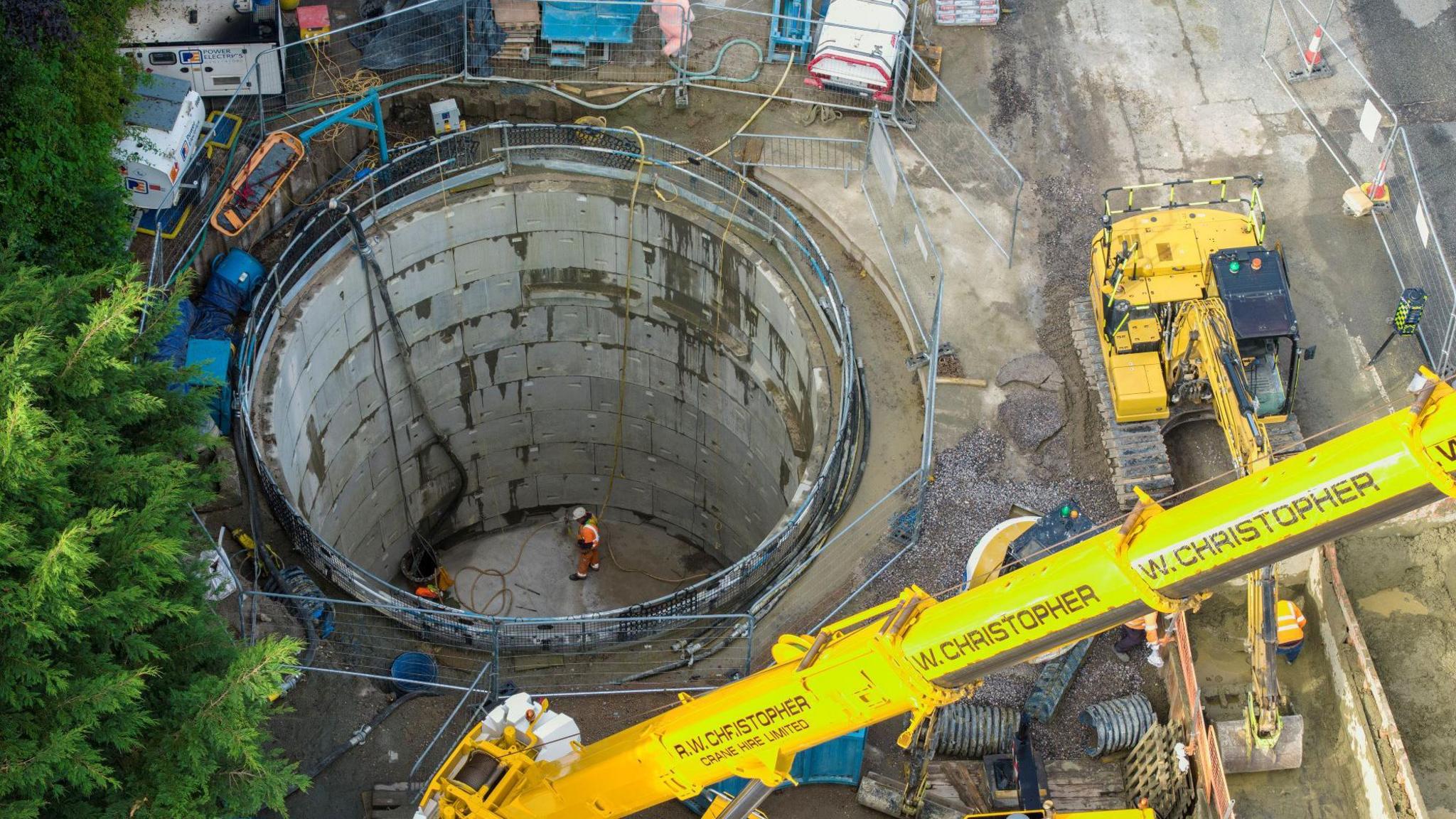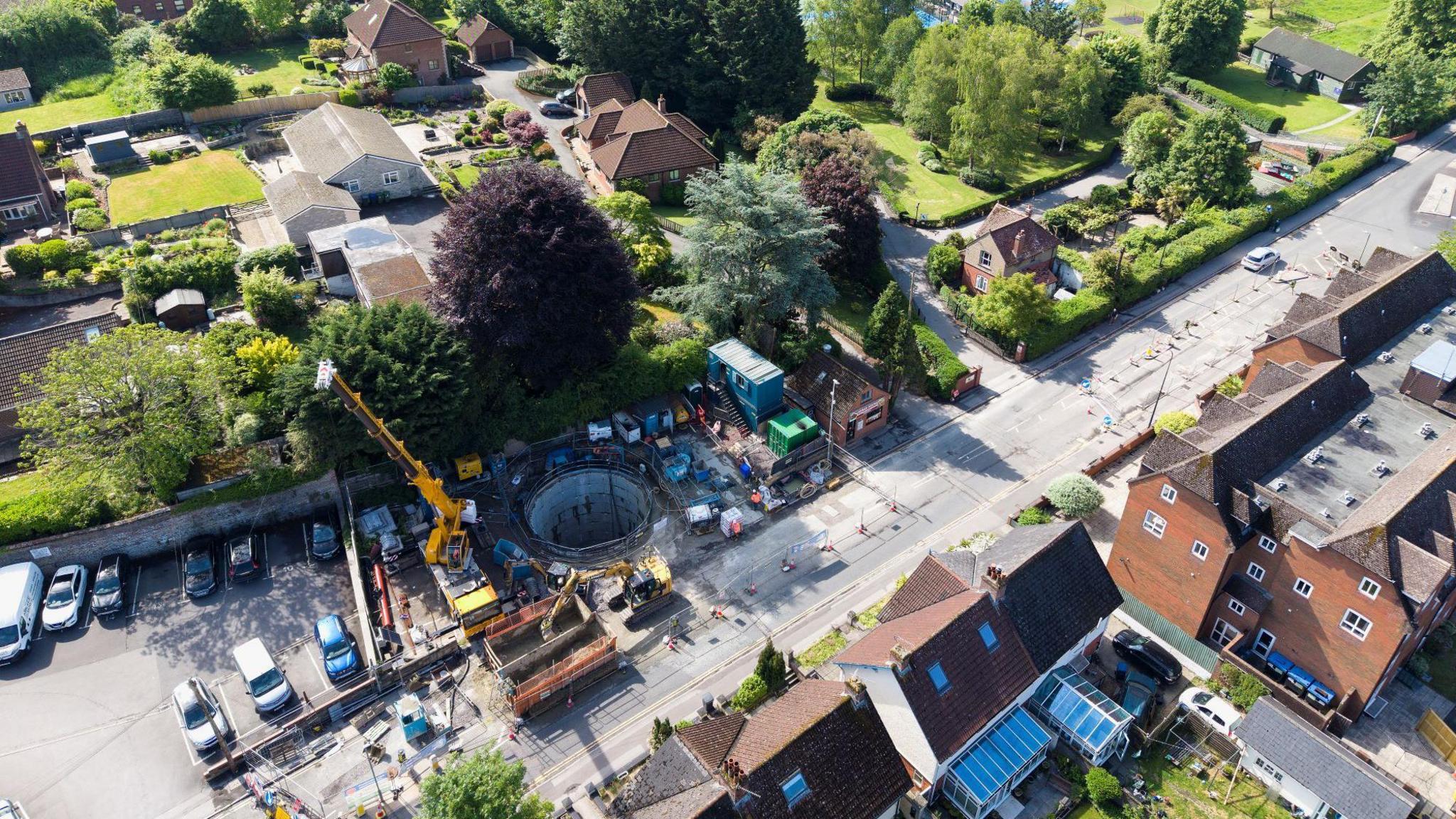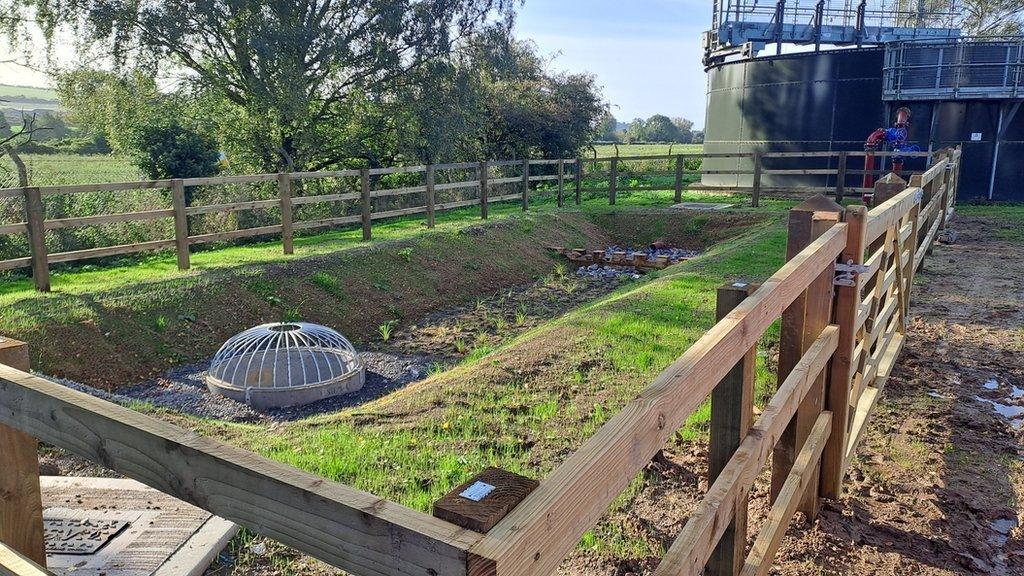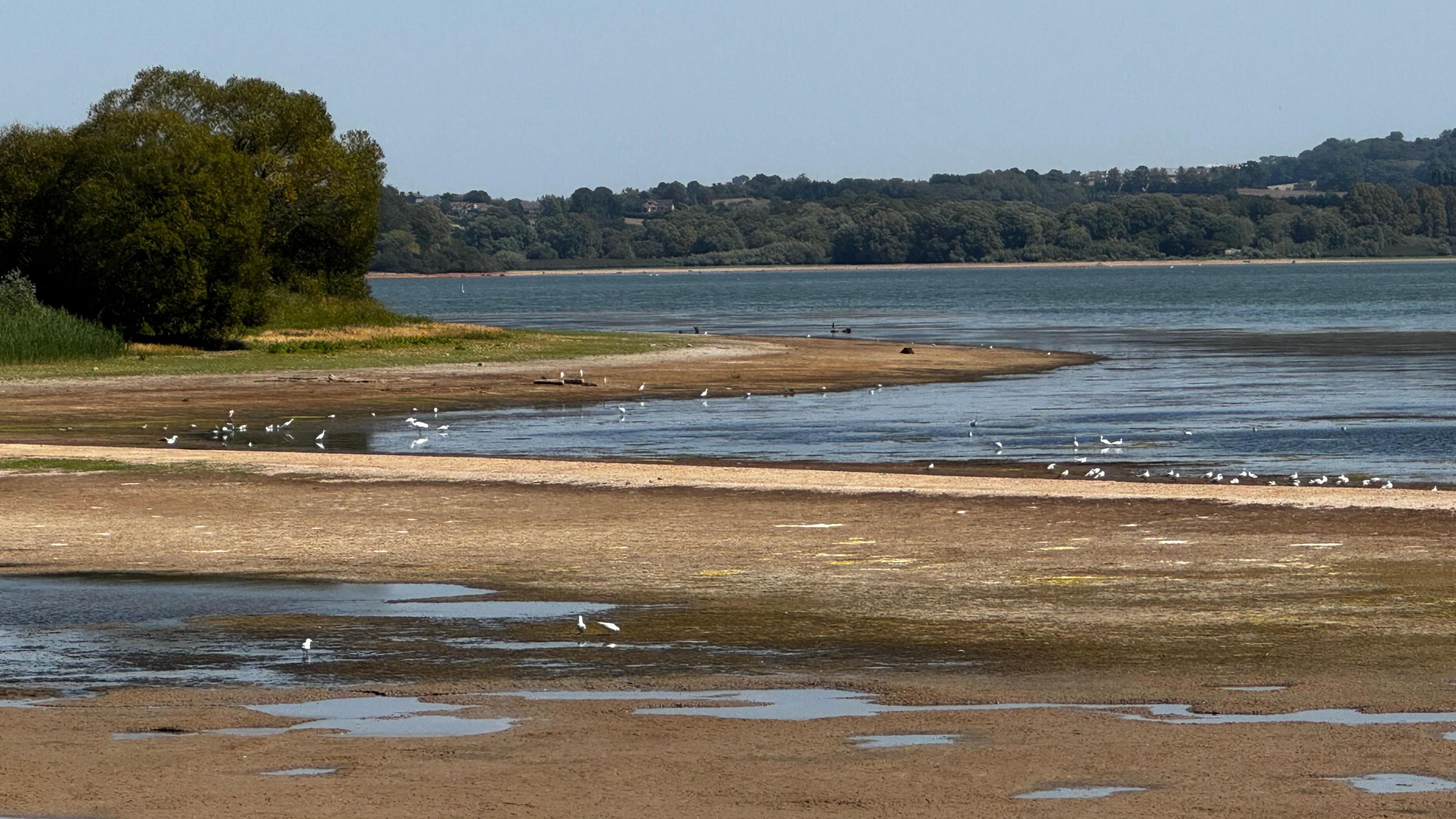Giant £2m river protection tank is nearly complete

The 400,000 litre tank is designed to separate excess sewage water from rivers
- Published
A £2m project to help prevent sewage from entering a town's rivers has almost finished, with a road closure for the works now lifted.
The 400,000l underground tank will hold excess sewage water during storms in Warminster, Wiltshire, stopping it from overflowing into the Were and Wylye rivers.
The works meant part of Weymouth Street in the town centre was closed off in one direction for a year.
A car park and footpath above the tank will be reinstated over the next couple of weeks.

The tank is underneath a public car park in Warminster
Wessex Water has already installed similar tanks in Chippenham and Bradford-on-Avon over the past two years.
The tanks hold rain water, and waste water from homes and businesses, until storms subside, when it can be sent to a water treatment centre.
The company said the work in Warminster took three months longer than expected because it had to solve an issue of groundwater filling the area for the tank.
Andrew Cooper, mayor of Warminster, said the tank should "hopefully make the town safer and ultimately cleaner".
He said there had been problems with sewers backing up and the river overflowing.
The tank is expected to protect the River Were, which runs through the Smallbrook Meadows nature reserve in the town before joining the Wylye.
Mr Cooper said: "We've created a beautiful water meadow and that's become extremely important to wildlife."
Greg Andrews, from YTL Construction, which carried out the work, thanked locals for their "patience, co-operation and understanding".
"This work was vital towards helping to protect the environment in Warminster," he said.
The project is part of Wessex Water's plans to spend more than £500m to reduce storm overflows from 2025 to 2030.
Get in touch
Tell us which stories we should cover in Wiltshire
Follow BBC Wiltshire on Facebook, external, X, external and Instagram, external. Send your story ideas to us on email or via WhatsApp on 0800 313 4630.
- Published26 March

- Published5 February 2024

- Published15 August
